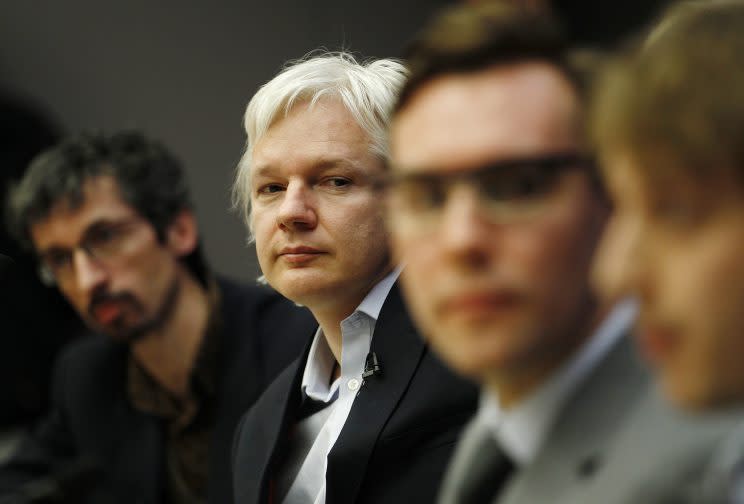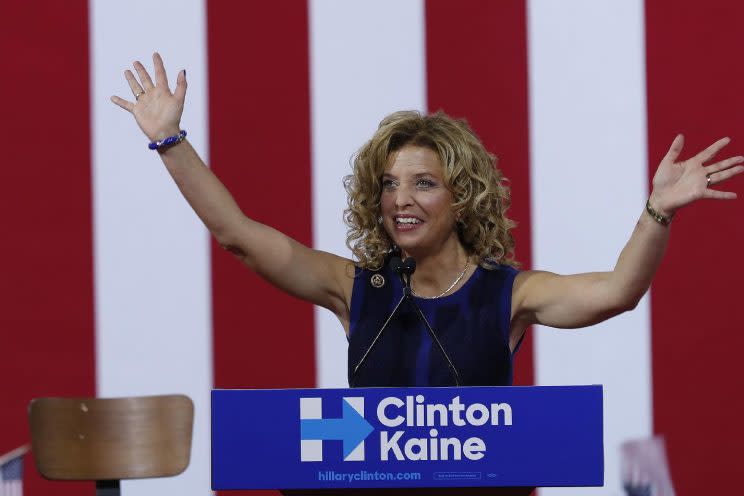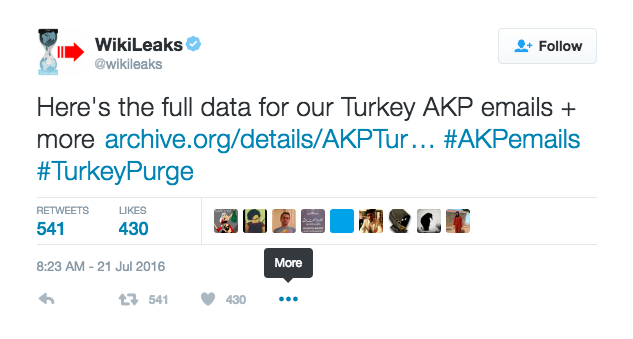If you value privacy, WikiLeaks stopped being your friend years ago

The Democratic Party can’t be happy with WikiLeaks after that site published 19,252 emails taken from the Democratic National Committee’s servers. But party donors should be even angrier.
WikiLeaks, perhaps best known for its 2010 disclosure of video showing US soldiers fatally shooting Iraqi civilians, on Friday posted a trove of messages to and from the DNC that included home addresses, Social Security numbers and other personally identifiable information found in routine donation records.
Some cybersecurity experts believe Russian operatives leaked the DNC emails to Wikileaks, which describes itself as a “multi-national media organization and associated library.”
And its Twitter account has been getting into the creepy zone lately. Should you take this group as the independent guardian it portrays itself to be? I’m going to say no.
Doxing DNC donors
As Gizmodo and other news sites observed, if you search for “Contribution” in WikiLeaks’s DNC archive, you’ll see where these contributors live, the last four digits of some of their credit cards, and sometimes even their Social Security and passport numbers.
“There’s no clear public-interest value in publishing them,” said Alex Howard, a senior analyst with the Washington-based transparency group Sunlight Foundation. Instead, Howard says the act was “ethically dubious if not outright reprehensible.”

The DNC should have known to encrypt information that sensitive, and an organization as security-conscious as WikiLeaks should have known not to publish it. Yet its Twitter account said this large-scale unmasking of private citizens “isn’t an error.”
An e-mail sent to WikiLeaks’ media-contact address Tuesday went unanswered.
Wikileaks’ DNC archive did reveal some concerning episodes. In one e-mail, a Politico reporter let a DNC staffer inspect an unpublished story. Others showed the DNC working behind the scenes to support Hillary Rodham Clinton’s nomination.
(The Republican National Committee had its own ambitions to find and back an establishment candidate, but the RNC seems to have escaped WikiLeaks’ attention).
But exposing wrongdoing doesn’t demand a data breach, and “doxing” isn’t reporting. International Consortium of Investigative Journalists director Gerard Ryle recently summed up this sentiment to Wired after his organization published its carefully screened “Panama Papers” money-laundering report. “We’re not WikiLeaks,” Ryle told Wired.
WikiLeaks has done this before. It exposed Afghan intelligence sources in 2010 — founder Julian Assange said he was only obliged to protect those facing “unjust retribution” — and then revealed human-rights activists in a 2011 dump of State Department communications.
Troubling signs
Separate research by security firms Fidelis, Mandiant and ThreatConnect strongly suggests WikiLeaks got these e-mails from Russian intelligence agencies who earlier hacked into the DNC. That makes today’s site look even less like the one that helped document a secretly negotiated, multinational deal called the Anti-Counterfeiting Trade Agreement in the late 2000s.
Vladimir Putin may not be trying to influence the election, but Assange clearly loathes Clinton and has threatened to reveal more DNC details soon.
“The timing of the DNC leaks raises questions,” wrote James Love, director of Knowledge Ecology International. “If WikiLeaks is able to get Donald Trump elected, well, I think that will have consequences for everyone, and I don’t see how Assange sees this as a positive.”
Knowledge Ecology International relied on WikiLeaks documents for its criticism of ACTA and the Trans-Pacific Partnership trade agreement, and Love said earlier dealings with Assange’s group had been pleasant: “In the TPP leaks, they did a lot of work to protect the sources.”
Assange, Howard said, has a history of seeing Western democracies as a bigger threat than the likes of Russia or China. He asked Assange about that during the WikiLeaks founder’s video appearance at a conference in Mexico City, and, Howard recalled, “He got fairly upset about it.”
(Assange had to attend remotely because he’s been holed up in Ecuador’s embassy in London since 2012 amid an investigation into sexual assault allegations against him.)

WikiLeaks’ recent Twitter output also suggests strange priorities. That account invited its 3 million-plus followers to browse a now-offline archive of e-mails from Turkish citizens, violating their privacy for no good reason, and even tweeted poorly veiled anti-semitic insults, which the organization has since deleted.
Electronic Frontier Foundation director for international freedom of expression Jillian York, a past WikiLeaks supporter, tweeted Thursday that she was done with the group: “Support isn’t unconditional and this week nailed that coffin.”
Other civil-liberties groups still back WikiLeaks. The Freedom of the Press Foundation features a prominent fundraising link for WikiLeaks on its own homepage.
WikiLeaks didn’t invent this problem
The outrage over WikiLeaks’s carelessness with the info of innocents yields to the realization that other organizations have made comparable mistakes — even if they could point to legal reasons that argued for exposing people’s personal information.
US police departments made arrest-record databases publicly searchable, then “mugshot sites” collected arrest photos and charged extortionate fees for—maybe—removing them. A suburban New York newspaper aimed to dramatize the extent of gun ownership in two counties by taking addresses of registered gun owners, available through a public-records search, and putting them on a searchable map. Washington’s elections board read the law narrowly in deciding to post a searchable database of the names, home addresses and voting history of D.C. residents.
All of those actions publicized personal data that citizens could not have reasonably expected to become search-engine bait. How many other databases are waiting to go online through a hack or intentional sharing?
Something Assange said in a remote video appearance at the SXSW conference in 2014 comes to mind: “It’s not the case anymore that you can kind of hide from the state, that you can keep your head down.” More of WikiLeaks’ latest “help” can only assure that.
Read more:
Twitter won’t solve its harassment problem by banning one jerk
How to make sure no one else can read your Facebook messages
Here’s what Republicans (and maybe Trump) think about tech policy
Tech execs weren’t being totally fair when they trashed Trump’s tech policy
Email Rob at [email protected]; follow him on Twitter at @robpegoraro.
Correction: An earlier version of this story stated that Assange was in the Ecuadorian embassy in London to avoid being arrested on rape charges. He has not been charged with rape. The sentence has been corrected.
